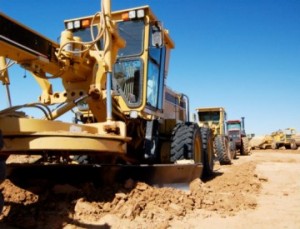
For many small to medium-sized construction companies, it makes more sense to rent some types of heavy equipment when it’s needed rather than purchasing the equipment outright. A growing trend in American commerce, that of the “sharing economy,” has the potential to significantly change heavy equipment leasing and the way construction companies acquire and use the equipment they need.
Leasing companies and rental agencies have been the traditional solution to the challenge of finding and acquiring the right equipment when it’s needed. As commercial entities, these businesses must operate on a model that allows them to generate a profit on the items they lease. Even if leasing costs are relatively high, construction companies can still benefit financially from short-term leases instead of high-dollar purchases.
The concept of the sharing economy, however, has the potential to disrupt the traditional supply chain used in equipment rental and leasing.
The sharing economy approach allows almost anyone who owns a valuable commodity to make that commodity available to others for a price. For example, companies have emerged that allow private individuals to make their personal vehicles available for transportation, bypassing traditional taxies. Others offer temporary lodging in individuals’ homes, eliminating the need for a hotel room. Often these services are less expensive than comparable services from commercial companies, and are easier to acquire through specialized software and online connections.
For construction companies, this may lead to leasing equipment from other builders rather than from a specialized agency. Construction firms with heavy equipment sitting idle can generate revenue while smaller companies can find necessary equipment at a lower price. Services that match equipment owners with companies that need that equipment have already started to emerge, according to reporter James R. Hagerty in the Economist.
Industry professionals turn to Construction Monitor for the latest news on important trends that will affect how business will get done and projects will be completed. Contact us today for more information on heavy equipment leasing and how the concepts of the sharing economy are likely to transform how companies purchase, lease, and use the equipment they need.

I can see how it would make more sense to rent heavy machinery for a small construction company. It seems like it would really depend on how often they think they will use the equipment. It is interesting how an economy focusing on “sharing” is increasing the rate of rental supplies.
For smaller companies, it makes much better sense to rent or lease equipment out. This is good since they usually don’t have the funds to buy the equipment outright. I really like the idea of sharing economy. Like you said, it allows anyone who own the equipment to make it available to others.
I have an article to share here if you still want more info in renting or buying : http://askthepoolguy.com/ask-the-pool-guy-to-rent-or-to-buy-heavy-equipment-qa/
This article compares renting and leasing, the other article compares renting and leasing. Renting is really good for small startup companies, or medium ones too, especially when you have little capital. Even if you already started up your business and already have a foothold, if you don’t have that much jobs, buying one will just be a liability.
I didn’t realize that you could lease construction equipment from other construction companies. I bet that doing that would be much cheaper than buying your own new equipment. It might not be as reliable as finding a company who operates specifically in rentals though.
I can see why smaller companies would want to rent heavy construction equipment. It seems like it would be much more affordable and economically feasible. I think it would all depend on the type of work that is planned on and the projected schedule.
I like how you pointed out that most companies can benefit from leasing construction equipment versus buying it outright. I feel like this would apply especially to contractors who deal with a wide variety of jobs. It would definitely be helpful in that situation since it gives a contractor access to various machinery without the large overhead upfront costs of purchasing the equipment on a job to job basis.
I am glad that you discussed the sharing economy when it comes to renting some types of heavy equipment when it is needed rather than purchasing it outright. It makes sense that small and medium-sized construction companies consider renting the equipment that they need in order to deliver the service that is expected of them. I believe that renting can be more cost-efficient for some industries, especially if it requires the purchase of equipment that will “cost a fortune” if bought. I have friends whose work is close to the construction field, and I will definitely share this information to them so that they will be aware that it is still possible to take on huge construction projects even without the purchase of heavy equipment.
It makes sense that renting or leasing heavy equipment is smart. Like you said, that way, a company doesn’t have to make really pricey purchases for a job. In my opinion, renting anything is almost always better than buying it.